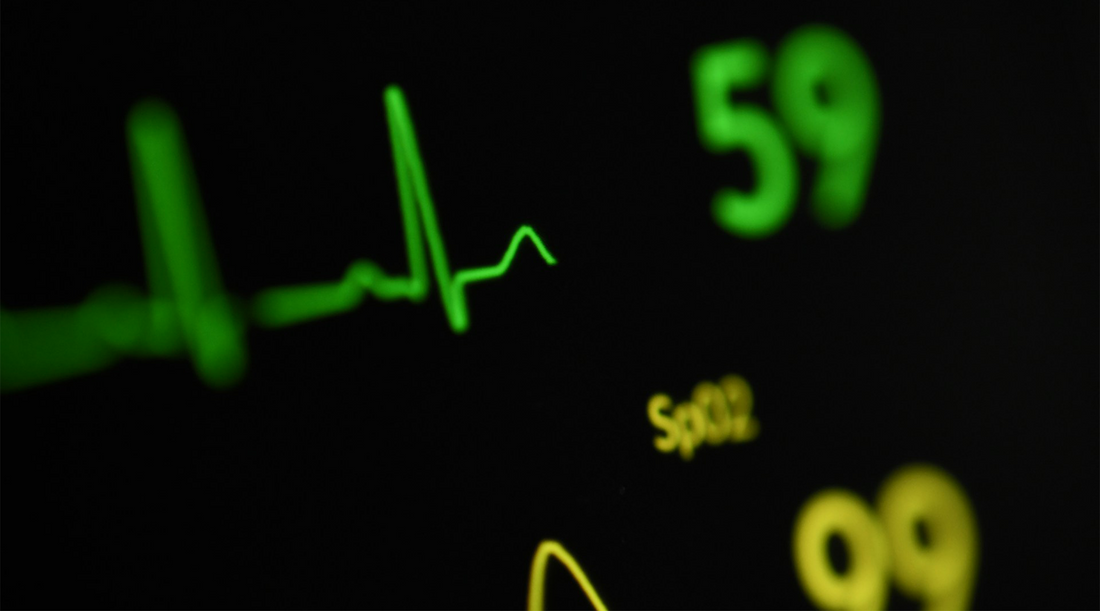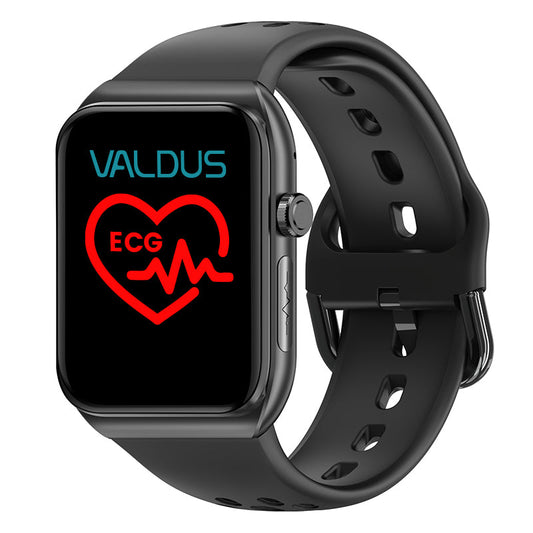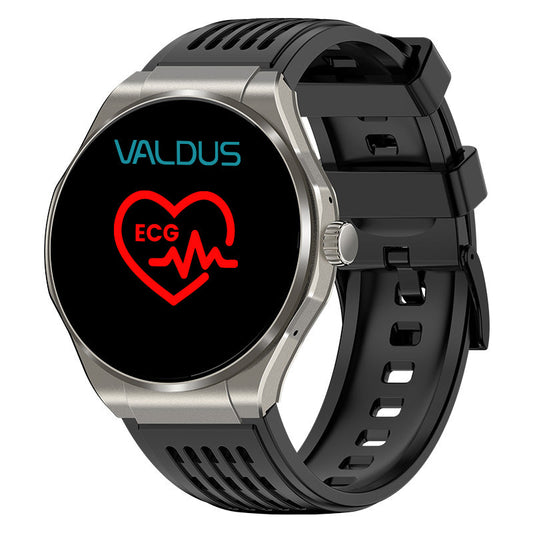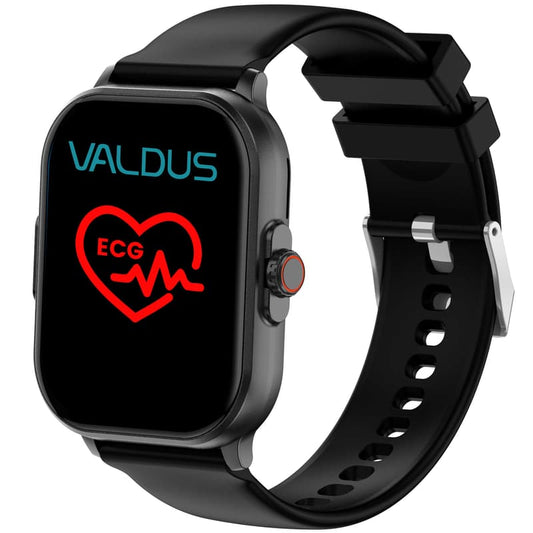
ECG vs EKG Are They the Same Thing
Share
When it comes to medical terminology, confusion often arises due to similar acronyms, particularly in cardiology. One common point of confusion is the difference between "ECG" and "EKG." If you’ve ever wondered whether they are the same or what distinguishes them, you’re not alone. In this article, we’ll dive deep into what ECG and EKG stand for, how they are used, and whether there’s any real difference between the two.
What is an ECG?
An ECG, or electrocardiogram, is a test that records the electrical activity of the heart over a period of time. This non-invasive procedure involves placing electrodes on the skin, which detect the electrical signals generated by the heart as it contracts and relaxes. The information collected is crucial for diagnosing a variety of heart conditions, including arrhythmias, heart attacks, and other cardiac abnormalities.
What is an EKG?
EKG stands for "elektrokardiogramm," which is simply the German spelling of the term. In essence, an EKG is the same as an ECG. The term "EKG" is more commonly used in Europe, particularly in countries where German is spoken. In the United States and other English-speaking countries, "ECG" is the more prevalent term.
Historical Background: Why Two Terms?
The difference between ECG and EKG arises purely from linguistic differences rather than any variation in medical technology or methodology. The term "elektrokardiogramm" was coined by Dutch physiologist Willem Einthoven in the early 20th century, who is credited with inventing the first practical electrocardiograph. As the technology spread, the term "EKG" remained in German-speaking regions, while "ECG" became the norm in English-speaking countries.
ECG vs EKG: The Role of Language and Tradition
The dual terminology has persisted mainly due to tradition and language differences. In medical literature and practice, "ECG" and "EKG" are used interchangeably, with no difference in meaning or application. However, some healthcare professionals may prefer one term over the other based on their training or regional practices.
Clinical Uses of ECG/EKG
Both ECG and EKG are used to monitor heart health. They provide invaluable information that helps in diagnosing a wide range of conditions:
- Arrhythmias: Abnormal heart rhythms can be detected and classified.
- Heart Attacks: An ECG/EKG can show signs of a heart attack or indicate previous heart damage.
- Structural Abnormalities: Enlargement of the heart or other structural issues can be identified.
- Monitoring and Treatment: Continuous ECG/EKG monitoring is often used in hospitals to monitor critically ill patients or during surgery.
Understanding the Procedure
Undergoing an ECG/EKG is a straightforward process. Here’s what typically happens:
- Preparation: The patient is asked to remove any clothing or jewelry that may interfere with electrode placement.
- Electrode Placement: Several electrodes are attached to the chest, arms, and legs.
- Recording: The electrodes pick up the heart's electrical signals, which are then recorded by the ECG/EKG machine.
- Analysis: The recorded data is analyzed by a healthcare professional to identify any abnormalities.
Are There Different Types of ECG/EKG?
Yes, there are several types of ECG/EKG tests, each serving different purposes:
- Resting ECG/EKG: Conducted while the patient is at rest.
- Stress ECG/EKG: Performed during physical exertion to monitor the heart's response to stress.
- Holter Monitoring: A portable device records heart activity over 24-48 hours.
- Event Monitoring: Similar to Holter monitoring but used over a longer period, capturing data only during symptoms.
Interpreting ECG/EKG Results
Interpreting an ECG/EKG requires specialized knowledge. The results are typically represented as a series of waveforms, each corresponding to a phase of the heart’s electrical cycle:
- P Wave: Indicates atrial contraction.
- QRS Complex: Represents ventricular contraction.
- T Wave: Reflects ventricular relaxation.
Abnormalities in these waveforms can suggest various cardiac issues, such as ischemia, infarction, or electrolyte imbalances.
Common Misconceptions About ECG vs EKG
One of the most prevalent misconceptions is that ECG and EKG are different tests. As we’ve clarified, they are not. They represent the same test but are simply denoted differently based on language.
Another misconception is that an ECG/EKG can detect all heart problems. While ECG/EKG is a powerful diagnostic tool, it may not detect all types of heart conditions, particularly those that are intermittent or not related to the heart's electrical activity.
When Should You Get an ECG/EKG?
An ECG/EKG is often recommended if you exhibit symptoms such as chest pain, shortness of breath, dizziness, or palpitations. It may also be advised as part of a routine check-up for those with a history of heart disease, high blood pressure, or other risk factors.
The Importance of Regular Heart Monitoring
Regular heart monitoring, especially for individuals with risk factors or a family history of heart disease, can be life-saving. ECG/EKG tests are non-invasive, quick, and provide vital information about your heart's health. Early detection of heart issues can lead to more effective treatment and better outcomes.
Advancements in ECG/EKG Technology
Technological advancements have significantly improved ECG/EKG machines. Modern devices are more compact, portable, and capable of transmitting data wirelessly to healthcare providers, facilitating remote monitoring. Some wearable devices now offer basic ECG/EKG functionality, allowing for continuous heart monitoring outside of clinical settings.
The Role of Artificial Intelligence in ECG/EKG
Artificial Intelligence (AI) is increasingly being integrated into ECG/EKG interpretation. AI algorithms can analyze ECG/EKG data with high precision, potentially identifying patterns that may be overlooked by human clinicians. This technology holds promise for enhancing the accuracy and speed of cardiac diagnostics.
Cost Considerations: ECG vs EKG
In most healthcare settings, the cost of an ECG/EKG is relatively low, especially when compared to other diagnostic tests like MRIs or CT scans. The price may vary depending on the type of ECG/EKG and the facility where it is performed. Insurance often covers the cost, particularly if the test is medically necessary.
FAQs
Are ECG and EKG used in different medical settings?
No, ECG and EKG are used interchangeably in all medical settings. The difference is purely in the terminology.
Can an ECG/EKG detect a heart attack?
Yes, an ECG/EKG can detect signs of a current or previous heart attack.
Is one term more accurate than the other?
Both terms are equally accurate; the choice of term depends on regional or linguistic preference.
Do I need an ECG/EKG if I have no symptoms?
While not always necessary, an ECG/EKG may be recommended if you have risk factors for heart disease.
How often should I get an ECG/EKG?
The frequency of ECG/EKG testing should be determined by your healthcare provider based on your health status and risk factors.
Can I have an ECG/EKG at home?
Yes, with advancements in technology, portable ECG/EKG devices are available for home use, although they should not replace professional medical evaluation.
Conclusion
In summary, ECG and EKG are two terms that refer to the same test, used to monitor and assess heart health. Despite the difference in terminology, the technology, and purpose of the test remain identical. Whether referred to as ECG or EKG, this test is a cornerstone of cardiac care, offering critical insights into heart function and aiding in the diagnosis of numerous heart conditions.
Understanding the nuances of ECG/EKG can help demystify this essential diagnostic tool, ensuring that patients are well-informed and confident in their heart health assessments. With ongoing advancements in technology and the integration of AI, the future of ECG/EKG holds the potential for even greater precision and accessibility, further improving patient outcomes and the quality of care.





